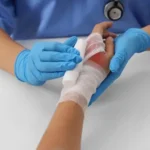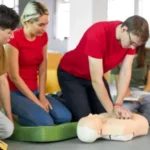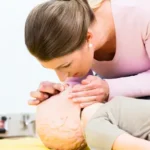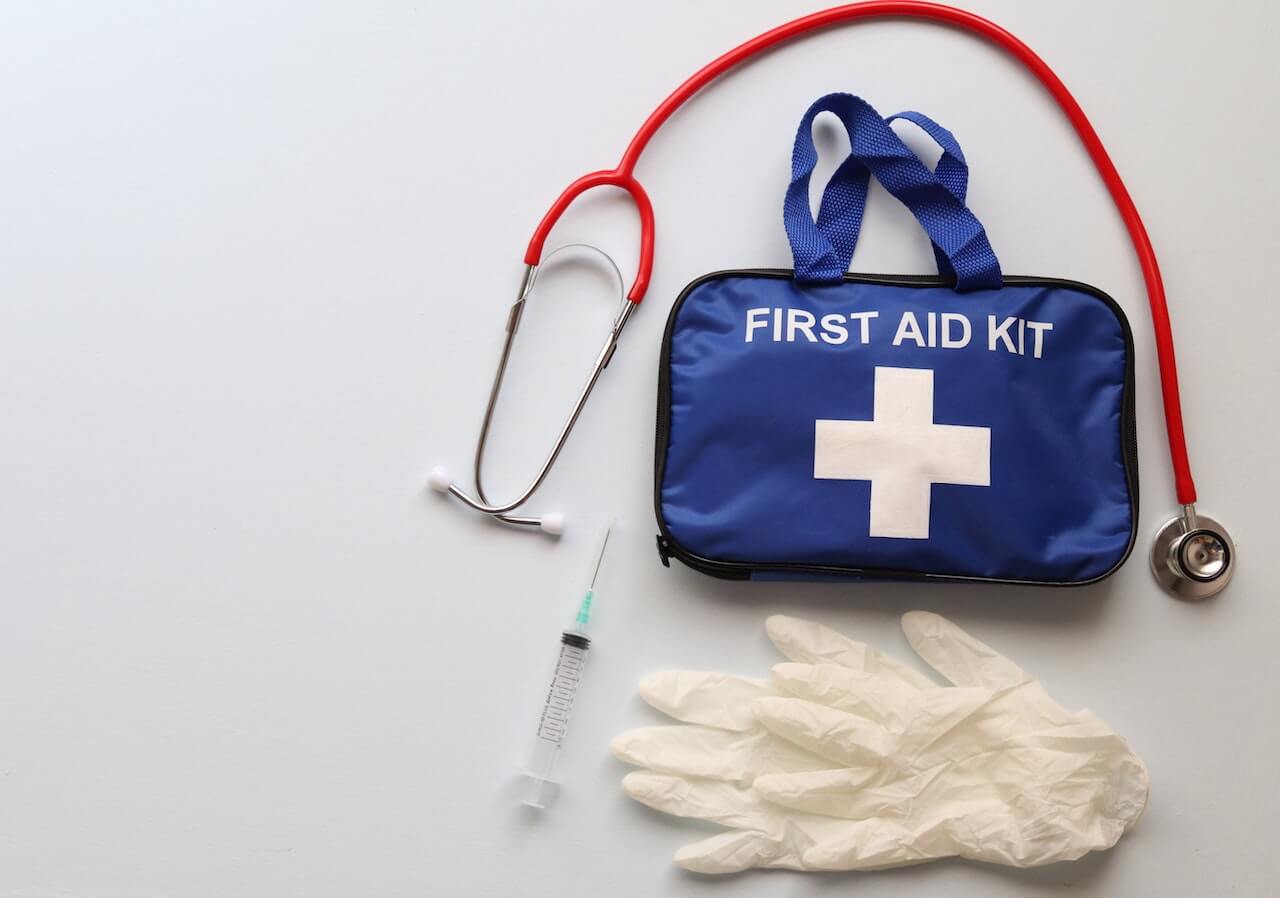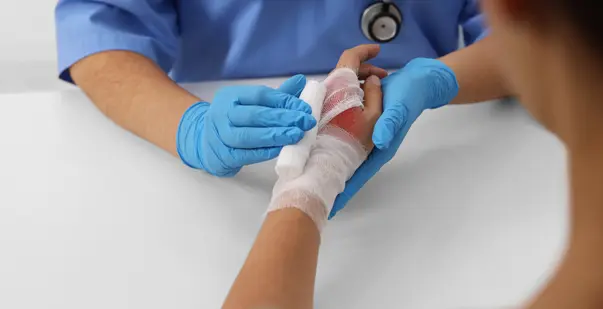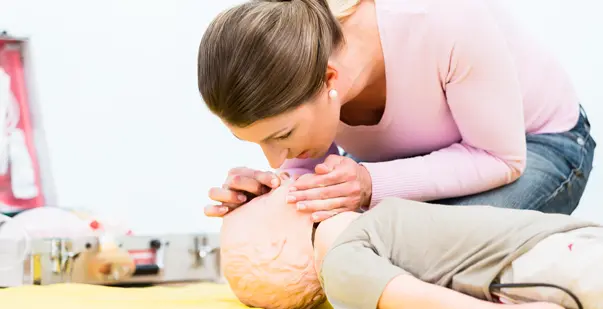Anaphylaxis is a life-threatening allergic reaction that can cause shock, trouble in breathing or a drop in blood pressure. First aid and emergencies due to allergic reactions becomes an urgent requirement. Victims go through anaphylaxis minutes after exposure to an allergy-causing substance. In some situations, anaphylaxis occurs without prior warning or is a delayed response to an earlier exposure.
You can save the lives of patients with severe allergic reactions before paramedics arrive to speed up the process of recovery. For that, you need the right knowledge on anaphylaxis: first aid treatment, its symptoms and more. Read the same below before registering for the nationally-accredited online First Aid course and certification by American HealthCare Academy.
Symptoms Of Severe Allergic Reactions
Anaphylaxis symptoms can occur within minutes of the patient’s exposure to an allergen. The allergy reaction sometimes takes about an hour or even more. So, get acquainted with the right signs of anaphylaxis to start the first aid on time. These signs or symptoms are:
1. Skin rash
Skin rashes are bumpy, itchy, painful, and hot. These are common in severe allergic reaction situations like anaphylaxis. A mild rash is treatable with immediate first aid care. A prolonged treatment leads to danger to the patient’s life.
2. Hives
These are itchy bumps, popping out on the skin surface suddenly. They look scary upon exposure to an allergen. Hives might not be scary, but they are symptoms of an allergy becoming severe.
3. Low blood pressure
The patient feels they are about to pass out with a sudden drop in blood pressure. They feel weak and unable to walk to stand properly. If the blood pressure reaches very low, it could be life-threatening for the patient.
4. Swollen lips or tongue
Whenever the mouth, lips, or tongue swell for no reason, this is another sign of anaphylaxis or severe allergic reaction. The swollen tongue, mouth, or lip isn’t serious alone. But when it leads to difficulty in breathing, that’s where the patient needs anaphylaxis treatment.
5. Difficulty breathing
Sometimes, due to a severe allergic reaction, the chest tightens up. It becomes harder to breathe. The patient might start gasping for air. They might also be unable to speak properly because of constricted or tightened throat. This case leads to the inability to breathe. Hence, the chest tightens too. When this happens, a patient needs immediate first aid treatment.
Stages Of Allergic Reaction
Read the stages below to know what first aid treatment to provide later. Here are the stages:
1. Exposure to the allergen
Allergens enter your body via a bite or through the cavity. It means they are breathed in, touched, or eaten. Once allergens are in the body, the allergic reaction might start within minutes or hours. It depends on the allergen and duration of exposure.
2. Early allergic reaction
If a patient is allergic to a substance, it’s because their immune system considers that as an intrusive particle in the body. The immune system then attacks the allergen. So, the early allergic reaction is the response to eliminate the allergen from the body. However, an overreaction can lead to a case of anaphylaxis.
3. Later allergic reaction
It precedes the early allergic reaction stage. Most often, it occurs when the patient is left untreated or unattended for a long time during the earlier stage. The severe reaction reaches its peak most generally in 6-9 hours. The symptoms at this stage include irritating rashes, pain, swelling, rising body temperature, and difficulty breathing.
Describe First Aid For Allergy At Home
First aid on allergic reactions is helpful to speed up the recovery process for the patient. Knowing the right first aid for allergies at home can save lives and protect the patient from further severe side effects. Here are some first aid steps to consider to treat severe allergies at home:
- Call 9-1-1 immediately, especially when you’ve limited knowledge of the allergic reaction.
- Check for the EpiPen or epinephrine auto-injector at home.
- Help the patient be calm.
- Let them lie on their back and breathe as normally as possible.
- Raise their feet 12 inches.
- Cover them with a blanket.
- Turn them to the bedside if they are about to vomit or bleed.
- Loosen up the clothing for easy breathing.
- Perform CPR on a person who starts choking, gasping for air, or is about to faint.
The best way to learn to perform CPR as the basic first aid is to enroll in the American HealthCare Academy course. Our First Aid and CPR courses follow updated AHA guidelines.
Preventing Severe Allergic Reactions
An allergy management plan helps you to stay away from allergens exposure. It is also a vital step in controlling your allergic reactions like anaphylaxis. The best way to prevent severe allergic reactions is to get tested for allergies and consult the doctor first.
However, here are some common ways to control allergies:
- Avoid exposure to allergens.
- Take prescribed medicines on time.
- Keep an EpiPen with you if you are allergic to a substance.
- Keep a diary to track what you do and eat to identify signs of anaphylaxis.
- Know how to help someone with first aid on an allergic reaction.
Conclusion:
You must recognize the signs of anaphylaxis if you’re allergic to multiple substances. And as a lay responder, you must know the right first aid for allergic reactions to save lives. Along with First Aid, how long does CPR certification last? It lasts for 2 years and can be renewed. If you are searching for first aid certification near me then go for online first aid CPR certification from American HealthCare Academy. So enroll in American HealthCare Academy’s First Aid and CPR certification courses. OSHA-certified trainers design the curriculum, and video instructions are easy to follow.




